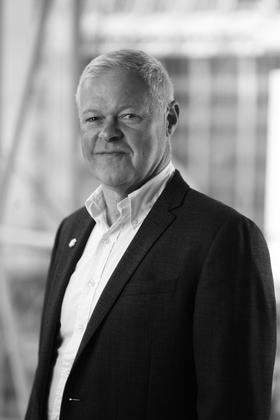How financial institutions can meet climate targets

This editorial was featured in the Financial Reporter.
Globally, there is an increasing focus on how the banking sector can continue taking active steps to tackle the climate crisis. COP26, which was held last year and culminated in the Glasgow Climate Pact, called for the financial services industry to take action through concentrated efforts to reduce company emissions, invest in environmental schemes, and pay attention to climate-related financial risks.
The call for organisations to align themselves with sustainability targets is mirrored by the wants of consumers, who are becoming increasingly environmentally-conscious. Recent research commissioned by Gatehouse Bank has revealed that two-thirds (65%) of 18–24-year-olds would place ethical commitments before financial returns when deciding where to put their money, even in light of current economic volatility. However, the research revealed a generational disparity, as this dropped to 27% of 45–54-year-olds and to less than a fifth (18%) of those aged over 65.
With consumers’ increasing environmental concerns affecting their financial behaviour, the focus is turning to the financial services industry’s role in how to progress and meet sustainability targets, including those outlined by the recent COP27 climate conference.
Banking with the best intentions
For customers looking to opt for more ethical banking options, there are ways to achieve competitive returns whilst staying true to personal ethical values. Individuals can look towards greener financial providers, consider ethical investment firms, and choose specialist savings accounts.
For example, there has been £11.6 billion invested in ESG funds since 2015, marking a clear shift in consumer behaviour. According to Make My Money Matter, such ethical savings options are reported as making a significant environmentally positive impact, similar to giving up flying, following a vegetarian diet, and switching energy providers, combined.
For many, another option is opting for a Shariah-compliant bank, which is often perceived to be more ethical than traditional banking due to the natural alignment between Shariah principles and sustainable development frameworks. As well as not investing in industries that could cause harm to society – such as alcohol, arms, or tobacco – we at Gatehouse Bank have formalised our commitment to do good for the environment by becoming a founding signatory to the UN Principles for Responsible Banking and been certified as operationally carbon neutral for two consecutive years. We also offer a variety of environmentally-conscious options, such as our Green Home Finance products and Woodland Saver accounts, where we plant a tree on behalf of our customers for every account opened or renewed.
The future of ethical banking
While customers continue to influence and drive positive changes within the banking (and many other) sectors, there is an inherent necessity for financial institutions to be equally proactive by taking measures to design ethical products and services, as well as align their own business with sustainable initiatives and frameworks.
This ethical focus must be central to processes used both within individual offices and across the entire value chain. Simple operational changes such as printing less paper could be made, as well as longer-term changes, such as using carbon-efficient buildings and working closely with supply chains to drive sustainable procurement and reducing financed emissions. These efforts are all an important step forward in meeting the terms of the Paris Climate Agreement.
Making changes to the banking and finance industries with environmental benefits as a core value will have positive repercussions for businesses, consumers, and the planet. Creating a framework that is both good for the planet and meets customer expectations is not mutually exclusive and should not be thought of as such. Keeping the COP26 and COP27 goals firmly in mind will act as a clear guideline for businesses, and consumers alike as they look to understand what changes are required to do good for the world right now and for future generations.